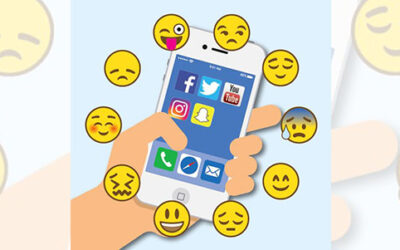A study, being led by the University of Manchester says that banning social media for young people could actually cause more harm than good.
Academics working on the #So.Me study said that our understanding of the impact of social media is still in its early stages and plans, like those in France and the US, to introduce legislation banning the free use of social media must be based on solid evidence.
It comes as over 20 online child safety laws have been passed by 13 US states in the last 12 months, with more in the pipeline. In Florida governor Ron DeSantis signed legislation banning children under 14 having social media accounts.
“Young people feel that adults might have a different opinion about social media because they did not grow up with it, and they ask for trust and agency,” said Dr Margarita Panayiotou, Senior Lecturer in Quantitative Methods at The University of Manchester.
“Legislation must take into account the voices and experiences of the people it will affect the most – Florida’s ban fails to do so.”
“Instead of panic and rash measures that take away young people’s agency and opportunities, we must focus on addressing the many and multifaceted mental health challenges young people face that are not limited to social media – otherwise, we risk failing them.”
The #So.Me study is led by The University of Manchester’s Institute of Education. It says that a swathe of recent research has found no concrete confirmation that social media has negative effects on the mental health of most young people, which “contrasts with some popular science accounts which are not grounded in fact. “
“A ban would cause young people to find alternatives to existing social media platforms that may be harder for parents, educators, researchers and legislators to study and monitor,” added Dr Eiko Fried, Associate Professor in Clinical Psychology at Leiden University.
“Rather than imposing restrictions, efforts should be directed towards educating young people, their guardians and educators on navigating the digital landscape safely, and on regulations which ensure that social media companies design age-appropriate features and algorithms.”
Academics believe that these bans were reminiscent of “technology panics” with similar bans proposed for television, computers and even a 1941 paper fearing that over half of the young people studied were ‘severely addicted’ to radio.
They fear that the bans fall into the trap on blaming young people’s mental health difficulties on one single factor, but adolescent development and mental health are highly complex and influenced by many biological, social and broader societal factors.
A different study of 1000s of young people found that other factors, such as a lack of family support may be more important than social media.










